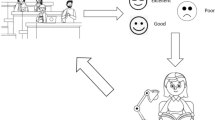Abstract
Students’ feedback assessment became a hot topic in recent years with growing e-learning platforms coupled with an ongoing pandemic outbreak. Many higher education institutes were compelled to shift on-campus physical classes to online mode, utilizing various online teaching tools and massive open online courses (MOOCs). For many institutes, including both teachers and students, it was a unique and challenging experience conducting lectures and taking classes online. Therefore, analyzing students’ feedback in this crucial time is inevitable for effective teaching and monitoring learning outcomes. Thus, in this paper, we propose and conduct a study to evaluate various machine learning models for aspect-based opinion mining to address this challenge effectively. The proposed approach is trained and validated on a large-scale dataset consisting of manually labeled students’ comments collected from the Coursera online platform. Various conventional machine learning algorithms, namely Random Forest (RF), Support Vector Machine (SVM), and Decision Tree (DT), along with deep-learning methods, are employed to identify teaching-related aspects and predict opinions/attitudes of students towards those aspects. The obtained results are very promising, with an F1 score of 98.01% and 99.43% achieved from RF on the aspect identification and the aspect sentiment classification task, respectively.
Access this chapter
Tax calculation will be finalised at checkout
Purchases are for personal use only
Similar content being viewed by others
References
Imran, A.S., Faouzi, A.C.: Multimedia learning objects framework for e-learning. In: International Conference on E-Learning and E-Technologies in Education (ICEEE) (2012). https://doi.org/10.1109/ICeLeTE.2012.6333417
Kastrati, Z., Blend, A., Arianit, L., Fitim, G., Engjëll, N.: Aspect-based opinion mining of students’ reviews on online courses. In: Proceedings of the 2020 6th International Conference on Computing and Artificial Intelligence (2020). https://doi.org/10.1145/3404555.3404633
Imran, A.S., Stewart, J.K.: HIP–a technology-rich and interactive multimedia pedagogical platform. In: International Conference on Learning and Collaboration Technologies, pp. 151–160 (2014). https://doi.org/10.1007/978-3-319-07482-5_15
Fisnik, D., Shariq, I.A., Zenun, K.: MOOC dropout prediction using machine learning techniques: review and research challenges. In: IEEE Global Engineering Education Conference (EDUCON), New York (2018). https://doi.org/10.1109/EDUCON.2018.8363340
Shariq, I.A., Fisnik, D., Zenun, K.: Predicting student dropout in a MOOC: an evaluation of a deep neural network model. In: Proceedings of the 2019 5th International Conference on Computing and Artificial Intelligence, New York (2019). https://doi.org/10.1145/3330482.3330514
Hai, H.D., Prasad, P.W.C., Angelika, M., Abeer, A.: Deep learning for aspect-based sentiment analysis: a comparative review. Exp. Syst. Appl. 118, 272–299 (2019)
Zenun, K., Shariq, I.A., Arianit, K.: Weakly supervised framework for aspect-based sentiment analysis on students’ reviews of MOOCs. IEEE Access, 106799–106810 (2020). https://doi.org/10.1109/ACCESS.2019.2928872
Shariq, I.A., Laksmita, R., Faouzi, A.C., Sule, Y.Y.: Semantic tags for lecture videos. In: 2012 IEEE Sixth International Conference on Semantic Computing, Italy (2012). https://doi.org/10.1109/ICSC.2012.36
Irum, S., Sher, M.D., Kamal, B., Maheen, B., Junaid, B., Mohammad, N.: Aspect-based opinion mining on student’s feedback for faculty teaching performance evaluation. IEEE Access, 108729–108741 (2019)
Shariq, I.A., Sher, M.D., Zenun, K., Rakhi, B.: Cross-cultural polarity and emotion detection using sentiment analysis and deep learning on COVID-19 related tweets. IEEE Access 181074–181090 (2020) https://doi.org/10.1109/ACCESS.2020.3027350
Rajesh, P.K., Prasad, A.V.K.: Informational flow on Twitter - Corona Virus outbreak - topic modelling approach. Int. J. Adv. Res. Eng. Technol. (IJARET), 128–134 (2020)
Hu, M., Liu, B.: Mining and summarizing customer reviews. In: Association for Computing Machinery, Seattle, pp. 168–177 (2014). https://doi.org/10.1145/1014052.1014073
Liu, B.: Sentiment analysis and opinion mining. Synth. Lect. Hum. Lang. Technol. 5, 1–167 (2012)
Andreas, M.K., Michael, H.: Higher education and the digital revolution: about MOOCs, SPOCs, social media, and the Cookie Monster. Bus. Horizons 59, 441–450 (2020)
Zenun, K., Arianit, K., Johan, H.: The effect of a flipped classroom in a SPOC: students’ perceptions and attitudes. In: Proceedings of the 2019 11th International Conference on Education Technology and Computers (ICETC 2019), pp. 246–249 (2019). https://doi.org/10.1145/3369255.3369304
Nikola, N., Olivera, G., Aleksandar, K.: Aspect-based sentiment analysis of reviews in the domain of higher education. Electron. Libr., 44–46 (2020). https://doi.org/10.1108/EL-06-2019-0140
Sarang, S., Sher, D.: Aspects based opinion mining for teacher and course evaluation. Sukkur IBA J. Comput. Math. Sci., 34–43 (2019) https://doi.org/10.30537/sjcms.v3i1.375
Barrón, E.M.L., Zatarain, C., Oramas, B.R., Mario, G.: Opinion mining and emotion recognition applied to learning environments. Expert Syst. Appl. (2020). https://doi.org/10.1016/j.eswa.2020.113265
Sangeetha, K., Prabha, D.: Sentiment analysis of student feedback using multi-head attention fusion model of word and context embedding for LSTM. J. Ambient Intell. Human. Comput. 12(3), 4117–4126 (2020). https://doi.org/10.1007/s12652-020-01791-9
Onan, A.: Mining opinions from instructor evaluation reviews: a deep learning approach. Comput. Appl. Eng. Educ. 28, 117–138 (2019). https://doi.org/10.1002/cae.22179
Author information
Authors and Affiliations
Corresponding author
Editor information
Editors and Affiliations
Rights and permissions
Copyright information
© 2022 The Author(s), under exclusive license to Springer Nature Switzerland AG
About this paper
Cite this paper
Edalati, M., Imran, A.S., Kastrati, Z., Daudpota, S.M. (2022). The Potential of Machine Learning Algorithms for Sentiment Classification of Students’ Feedback on MOOC. In: Arai, K. (eds) Intelligent Systems and Applications. IntelliSys 2021. Lecture Notes in Networks and Systems, vol 296. Springer, Cham. https://doi.org/10.1007/978-3-030-82199-9_2
Download citation
DOI: https://doi.org/10.1007/978-3-030-82199-9_2
Published:
Publisher Name: Springer, Cham
Print ISBN: 978-3-030-82198-2
Online ISBN: 978-3-030-82199-9
eBook Packages: Intelligent Technologies and RoboticsIntelligent Technologies and Robotics (R0)




